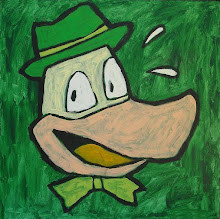
Completely by accident while wandering around Louisville's Calvary Cemetery the other day, I discovered the grave of bluesman Foree Wells, Jr.
Wells was born in Louisville, went on to conquer Memphis and then returned to Kentucky. He recorded with Bobby Bland, Jimmy Witherspoon, Arthur Gunter, and on Sun Records with Rosco Gordon.
Unfortunately, the angle of the sun prevented the low-contrast lettering on the headstone from showing up unless I blocked them with my shadow, which I clumsily attempted to do here with less than total success. I'll go back out sooner or later and retake them at a different time of day.
The inscription on the gravestone says: “Some people get up to play the blues and think that all you do is play three changes. There’s more to it than that. The blues is a feeling.”


According to the Kentuckiana Blues Society page about him:
Foree was born in Louisville, Kentucky, on January 10, 1936, into a family of music lovers. Both his father and grandfather played country music and blues. At age nine Foree taught himself to play guitar, starting out playing country tunes made popular by Roy Acuff, Grandpa Jones, Spade Cooley, Hank Snow and Cowboy Copas. By age eleven, he was part of the Alvin Thomas Band, which included Alvin, Foree and their schoolmates.
In 1953 he joined the Morgan Brother Band, one of Louisville’s most popular post-war blues bands. It was there that he met Arthur “Eggie” Porter, who later became guitarist for Hank Ballard and the Midnighters. For Foree, Eggie was “the first guy to actually show me anything about guitars. I learned everything he could play, then I began showing HIM things. He was my biggest influence, I believe.”
In 1956 Foree returned to Louisville, married his wife Lorene and got a job with L&N. He also became a bandleader, fronting the Foree Wells Combo and, later, the Rockin’ Redcoats, which featured Louisville guitarist, June “Smoketown Red” Downs. The band played at all the hot clubs in town: the Top Hat, the Diamond Horseshoe, Harry’s and Club 36. Foree remembered, "The worst place I ever played was Club 36. The first night I went in there, we played in the garden and I had beer bottles coming out of the door over the top of my head. I turned around to get back in the car. They had to pull me back in to come and play the job."
Most of the action in Louisville took place on Walnut Street. "It had more action going on than Beale Street. They had entertainment all up and down the street and it never shut down. The restaurants and things stayed open 24 hours a day - people walking up and down the street all night long - 24 hours a day! And jukeboxes would be going on all night long. That’s the way it was then."




No comments:
Post a Comment